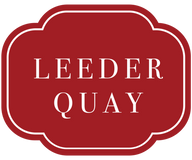Travelogue
Crash Course for a Wine Cause

The Vigilantes, being intrepid travellers, have never shirked from a challenge when it comes to going to far flung corners of the globe in search of Value. Where better to start our journey of discovery than to the Western Cape, regularly touted as one of the best places to visit in the world! Our first story is about our travels to Tierhoek vineyard.
We’re Off!
It all started well. After picking up our little Fiat 500 from the airport car rental, we went straight in the cruising mode up the N7. Incidentally, coming from Hong Kong, South Africa is a great place to hire a car to drive around since (a) English being one of the main languages; (b) right hand drive; (c) generally good road conditions until you get off the highways; (d) cheaper fuel (try half the price!), and (e) there is basically no other way to get around!
However, to get to this remote wine farm, we had to turn off the main road where the real journey started. The tarmac gave way to a dirt road with rocks and potholes strewn along the hard to navigate path. After a few slips and slides and near misses we knew we were near when we saw this sign:


Background
Tierhoek was established as a farm in 1866 and is one of the oldest surviving, original Sandveld farms on the Western Coast of Africa. It is located at some 760 metres high in the peaks of Piekenierskloof, where it experiences cold rainy Winters and long hot Summers, tempered by the cool Atlantic breeze.
The term Sandveld is a term given to the indigenous architecture of the West Coast. The main characteristics are simple style with thick white walls and small openings for wooden windows and doors. The furniture was usually handmade and carved out of Lemoen hout or orange wood.
The name Tierhoek translates to “Leopards’ Corner” in English as the farm is part of a protected “Leopards Corridor” stretching from the Cederberg to the Atlantic Ocean. The aim is to allow these endangered animals room to roam and give them a helping hand to survive the encroachment on their habitat. Being nocturnal creatures, they don’t tend to make an appearance during the sunny days, but if you set your stall out in the evenings long enough you might just get a glimpse:


The Vineyard
On arriving at the vineyard, we were greeted by Ryno, the resident Farm Manager and Viticulturist. Having been pleasantly surprised by the long journey we had taken to get there, he kindly invited us inside the property for some wine tasting (he'd better!)
We spent as much time talking about the wines as we did about his two other passions, these being rugby (who could have guessed!) and Kruger National Park, where he had spent a considerable part of his life and insists that we put it on our bucket list (yes sir)!
Viticulture
Although not officially certified as an organic wine farm, Tierhoek endeavours to maintain sustainable farming practices. No pesticides or herbicides are used in the vineyards. The sulphur used in the winemaking process meets the organic requirements and the fungicide is of the organic variety.
The varieties of white grapes grown are Chenin Blanc, Chardonnay, and Viognier and the reds are Grenache, Shiraz, and Mourvedre. Apart from grapes, the farm also grows Rooibos and Buchu for tea.
The Vigilantes were particularly interested in their Straw Wine, and having realised our interest, Ryno led us to the tables outside the cottage under the trees and showed how the Chenin grapes were being dried on the tables:


The Takeaway
The Vigilantes were most grateful and impressed by the hospitality shown by Ryno and his team at the vineyard, and we vowed to return again for another sampling of their latest vintage, but this time in a more sturdy set of wheels! In fact, we may just stay the night in the cottage, put some meat on the braai, enjoy the view over the Sandveld and go on a night safari to find that elusive Leopard. Now that’s what we call Value!
